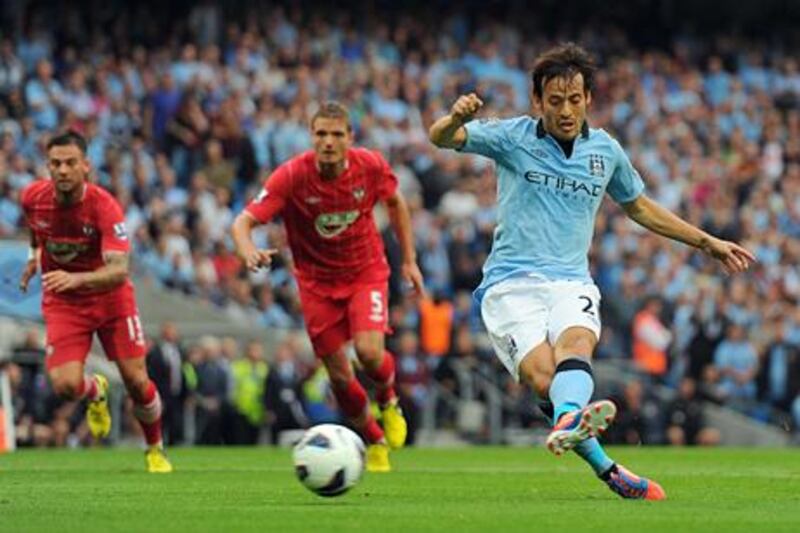Investment from the Middle East has helped to boost the revenues of European football clubs to record levels this year, according to Deloitte, a professional services company.
The 2012 Deloitte Football Money League found the combined revenues of the world’s 20 highest-revenue generating football clubs grew 3 per cent in the 2010 to 2011 season to exceed US$6 billion (Dh22bn) for the first time.
“As European economies struggle with recessionary pressures, which may make securing sponsorship and investment challenging domestically, there is an appetite from both European clubs and Middle East companies alike to forge new partnerships,” said Dan Jones, partner in the sports business group division at Deloitte. “It is no surprise that, as Middle East-based organisations look to further promote themselves on a global stage, we are increasingly seeing them choose football as a medium through which to achieve this.”
The buyout of Manchester City Football Club by Abu Dhabi’s Sheikh Mansour bin Zayed in 2008 paid off last year, as the team dramatically pipped Manchester United to the English Premier League title on one of the most memorable days in the league’s history.
Deloitte said Manchester City had spent an estimated $700 million in transfer fees since the change of ownership in 2008.
In France’s Ligue 1, Middle East investment also helped Paris Saint-Germain (PSG), owned by the Qatar Investment Authority, although the team narrowly missed out to Montpellier on being crowned the champions.
Mr Jones said there were investments that had a direct impact on revenues, such as sponsorship deals, and indirect effects, such as investment in players and facilities to boost broadcasting revenues, ticket and shirt sales as well as winning competitions.
“The Qatar influence at Barcelona is a direct commercial partnership whereas the Etihad and Abu Dhabi investment in City is much more wide ranging,” said Mr Jones.
Deloitte said Manchester City’s recent 10-year naming rights deal with Etihad Airways of the club’s stadium, estimated to be worth up to $600m, would further assist the club in moving up the Money League in the years to come.
Mr Jones added the club was likely to make the top 10 next year, up from its current position at 12, because it was in the Uefa Champion’s League last season as well as winning the English Premier League.
Seth Holmes, the director of consulting at IMG Middle East, a sports marketing, management and events company, said revenues from television broadcasting rights were still predominately the biggest source of revenue for clubs.
“The Middle East is having a major influence on world’s biggest football clubs in terms of ownership and, of course, expenditure but not necessarily on their revenues,” he said. “Sustained success on the pitch delivers revenues and that comes with time.
“Both Manchester City and PSG have owners who recognise heavy expenditure on a team requires strong commercial footing, especially with new Uefa rules pending, and are in various stages of organising themselves to compete financially with the established giants of Man United, Barcelona and Real Madrid.”
In 2013, Uefa, the European football ruling body, will begin assessing clubs’ financial positions to ensure they are not spending more than they earn and can service their debts.
Of the 20 clubs featured in the Money League, five benefited from shirt-sponsorship agreements with Middle East organisations in the 2010 to 2011 season.
Deloitte said Barcelona’s agreement with the Qatar Foundation, which was worth a reported $40m per season, contributed 13 per cent to the club’s revenue growth and meant sales exceeded $650m for the first time.
Real Madrid maintained their position on top of the Money League, with revenues of $695m, and Barcelona and Manchester United were second and third, with $653m and $532m, respectively.
twitter: Follow and share our breaking business news. Follow us
iPad users can read the digital edition of business section as it was printed via our e-reader app. Click here





